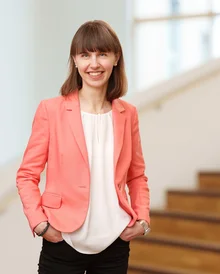What to do about constant sleepiness? UW/H intensifies research into sleep and wakefulness disorders
Prof. Dr. Ulf Kallweit was appointed to the endowed professorship for narcolepsy and hypersomnolence research at the UW/H - the only professorship in Germany that deals with these topics.

Why do we sleep? Despite intensive scientific research, this mystery has still not been conclusively clarified and is a fascinating part of sleep research. This is followed by the question of why some people are unable to develop a normal sleep-wake rhythm or suffer from excessive sleepiness during the day. The neurologist and sleep physician Prof Dr Ulf Kallweit deals with these topics. In order to expand teaching and research on sleep and wakefulness disorders at Witten/Herdecke University (UW/H), he was appointed to the endowed professorship for narcolepsy and hypersomnolence research - the only professorship in Germany that deals with this complex of topics.
Hypersomnolence and - as a special disorder - narcolepsy are neurological disorders characterised by extreme sleepiness. In contrast to "normal" tiredness, those affected cannot resist falling asleep even if they want to. They need more sleep at night and/or also have a constant need for sleep during the day. Both narcolepsy and other hypersomnolence disorders are among the waking disorders that Prof Kallweit is studying: the aim is to better understand the diseases themselves, the regulation of sleep and wakefulness and the mechanisms behind them. Prof Kallweit also looks at sleepiness in connection with other diseases such as Parkinson's or a stroke.
Waking disorders - a barely recognised topic in neurology
"Sleep research has received little attention in neurology to date, even though there is a need for it among patients," explains the neurologist. Although narcolepsy and idiopathic hypersomnia are rare diseases, daytime sleepiness/increased need for sleep affects around 5 to 10 per cent of the general population. "In addition to basic research, we are therefore also involved in clinical research that can be used in therapy," says Prof Kallweit. For example, a study is currently underway that is investigating the influence of a change in diet on narcolepsy: The researchers were able to show that a keto diet with few carbohydrates, lots of fat and slightly more protein than usual alleviates the symptoms of narcolepsy. The aim now is to understand the exact metabolic mechanisms behind this and derive specific recommendations for patients.
International study consortia, for example with Stanford University or the University of Bern, are also investigating what familial or genetic influences there are on the disease. The aim is also to identify new biomarkers for the individual diseases.
Sensitising students to sleep research
After working in Bern and Zurich and setting up various sleep laboratories, Prof. Kallweit will now continue his research at Witten/Herdecke University and raise awareness of the topic among students of human medicine and psychology. "In previous courses, I have always found that sleep and wakefulness topics are very interesting for the students and they are totally happy to take them on," he says. "Then they enter the profession and the topic is no longer present because, in our healthcare system structure, it is only a part of individual specialist disciplines and doesn't play a significant or acute role there. My aim is therefore to create a good basis for entering the profession and perhaps also to inspire some people to stay in this field and pursue the subject further."
The professorship is funded by the Marga and Walter Boll Foundation, the Imhoff Foundation and the European Sleep Foundation.
Photos for download
Contact person

Svenja Kurth, M. A.
Team Leader Communication
Administration | Communication & Marketing
Alfred-Herrhausen-Straße 48
58455 Witten
Room number: 2.F05 | 2.028
